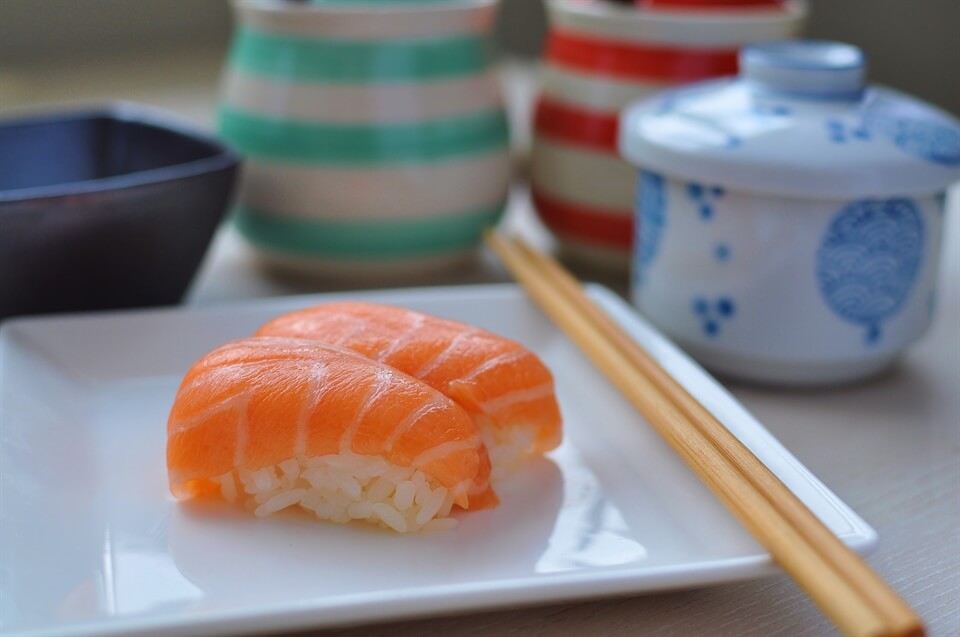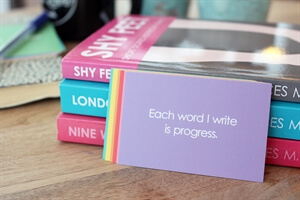NaNoWriMo Inspiration (Day 28): The Importance of Love & Being Habitual
Lessons learned about writing (and life) from a documentary on sushi
A few days ago I watched the documentary .
It's about an octogenarian sushi chef whose restaurant, in a Tokyo subway station, is considered the finest sushi restaurant in the world. It is the winner of three Michelin stars no less. Considering that there are no tables or waiting staff (only a sushi bar), the restaurant doesn't even have its own bathroom, and the average meal there lasts just fifteen minutes, this is something of a suprise to the average person whose understanding of a Michelin star restaurant is luxury, elegance and attention to every detail.
But Jiro does think about every detail. And he does think about how luxurious and elegant the experience is and it is generally considered that no sushi chef pays as much attention to detail as he does, for Jiro ploughs all his energy and experience into one thing; the sushi. As Jiro says himself, for him it's not about the money or even the fame, it's about making the best possible sushi he can.
Of course, sushi is not just one dish with the same ingredients and serving the world's best sushi is not as simple as slicing fish and boiling rice. Jiro and his chefs must source the finest fish - fresh every day - and the documentary revealed that this is something of a performance in itself - and repeat a series of time- and energy-consuming habits each day, in exactly the same routine in order.
As someone who travelled non-stop for over 18 months, you may not be surprised to know I have a strange relationship with routine.
I enjoy it and thrive from it... to a point. To use a poor metaphor, a hairdresser once told me you should always change your shampoo regularly in order to keep your hair looking good as otherwise it will grow used to one kind of shampoo and its effects will diminish. This is how I feel about routine. I like it, but I need to change or interrupt it regularly in order to benefit most from it.
But I think I'm ignoring something else. There are things I do every day: sleeping, eating, drinking water, brushing my teeth, talking, walking, smiling, laughing (I hope). Why can't I make writing (fiction) one of those things?
I think I'm missing the right fuel, which I'll go on to explain below because there are two important lessons I took from watching Jiro Dreams of Sushi. And both of them are going to help me win NaNoWriMo this year, in what will be a very last minute sprint finish.
The first lesson is that I am not really in love with writing.
Of course, I think I am. But I'm not. Not all the time.
Jiro dreams of sushi. Ideas come to him in the middle of the night and he takes them, clings to them, uses them as a weapon as he fights pre-conceptions and the high standards that he himself has set. He says he's still working towards something he hasn't achieved yet: Perfection.
When we watched this part of the documentary, NewMan (my boyfriend) and I turned to each other and rolled our eyes. There's no such thing as perfection, we both said to each other silently.
Of course, there isn't.
But the pursuit of perfection is real. That journey is the one you should go on. When will be ever learn that life is a journey, not a destination and if you spend it constantly trying to get better at something - something you love - than is there a better way to spend your life?
I want to fall back in love with writing, but how?
I have hated this year's NaNoWriMo more than any previous year. Or perhaps, the struggle was just as strong in 2012 and 2013, I have just blocked it out with the warm glow of success I felt. The reason I have hated it is there's been no let-up, and I don't know why this came as a shock to me. If I missed my daily quota that made the next day harder. If I didn't write at all (which so far has only happened on one day, thank goodness) I had double the number of words to write tomorrow. I have hated the relentlessness of it and the unforgiving nature of the daily word counts. But I know I have benefitted from them. This reminds me that there is such a thing as tough love.
So, I want to fall back in love with writing, but when I'm so full of distaste for how this month's 50,000 words have gone, how do I do it?
The second lesson is that habit can fuel love, and vice-versa.
When you make something a habit or routine, it becomes easier and often more productive and efficient. Writing is no different. In fact, it's a very good example of how habit can fuel creativity. I know this because I've experienced it myself. The more I write, the better my work and the easier it becomes.
It doesn't mean the act of writing is easier, it just means it's easier to actually do. You start to enjoy things you didn't use to (I've definitely experienced this with editing) and you take pride in the small things you use to dread.
When I watched Jiro's hands craft the sushi I knew I was only watching part of the process, the final part, because in just a few seconds the piece of nigiri would be placed in front of a customer. But he's still entirely focused on the task in hand. He's not thinking about how much money the restaurant is taking, or how many customers he has at his sushi bar. He's not even thinking about the next sushi he's going to make, he's still focused on the one he's making.
I've been thinking about too many other things this month. I've been thinking about what the book needs to look like in six months time, rather than what it needs to look like right now as a first draft. That has slowed and suffered my process.
I've been thinking about how I can improve as a writer more than I've been doing something about becoming a better writer, i.e. writing.
In the simplest terms, selling books does not make me a writer, writing does. So I should really just shut up, get on with and write, write, write.
After watching Jiro Dreams of Sushi, I sat back down at my desk and wrote 2469 words in just under 90 minutes. I wasn't proud of everything I wrote, but I knew I'd covered good ground and I liked more than a few phrases and sentences I'd thrown together.
That night I had a dream about one of the locations in my novel. It was the first time I'd dreamed about something I'd written in over a year. It felt magical. It felt like I was maybe falling in love again.
I woke up and wrote this blog post.
And now I'm going to stop writing this blog post so I can write more words for my novel, because nobody falls in love despite themselves. You have to be willing to give it a bit of help. I may have resisted it this month - and probably for too long before - but there's no denying that writing has to become a habit of mine if I'm going to keep that love affair going.
Also, I really want sushi for lunch.
Image: Source

Frances M. Thompson
Find Frankie on Facebook, Twitter, Instagram, Pinterest, and Google+.

 Preptober Tips & 100 Preptober Prompts for NaNoWriMo Prep
Preptober Tips & 100 Preptober Prompts for NaNoWriMo Prep On Writing: The Only NaNoWriMo Tips You'll Ever Need
On Writing: The Only NaNoWriMo Tips You'll Ever Need On Writing: Ten Tips for NaNoWriMo
On Writing: Ten Tips for NaNoWriMo NaNoWriMo Inspiration (Day 30): Someday Soon All This Will Be Someone Else's Dream
NaNoWriMo Inspiration (Day 30): Someday Soon All This Will Be Someone Else's Dream NaNoWriMo Inspiration (Day 29): Ten Songs That Are Actually Novels in Disguise
NaNoWriMo Inspiration (Day 29): Ten Songs That Are Actually Novels in Disguise About the Blog & Frankie
About the Blog & Frankie Welcome to My Amsterdam Travel Blog!
Welcome to My Amsterdam Travel Blog! Welcome to My Luxury Family Travel Blog!
Welcome to My Luxury Family Travel Blog! Welcome to My Writing Blog!
Welcome to My Writing Blog! Lover Mother Other: Poems - Out Now!
Lover Mother Other: Poems - Out Now! I Write Stories That Move You
I Write Stories That Move You Order WriteNOW Cards - Affirmation Cards for Writers
Order WriteNOW Cards - Affirmation Cards for Writers Work With Me
Work With Me